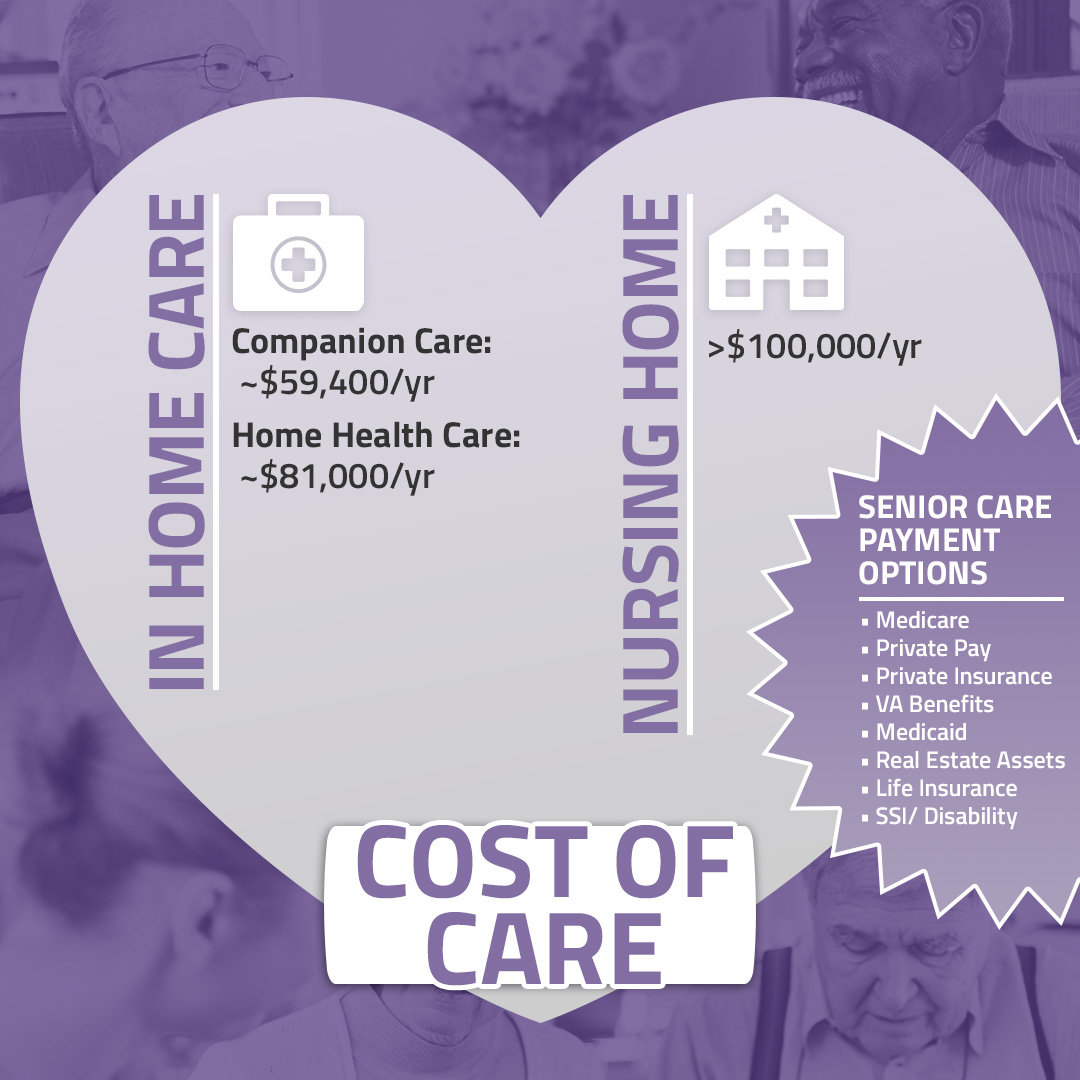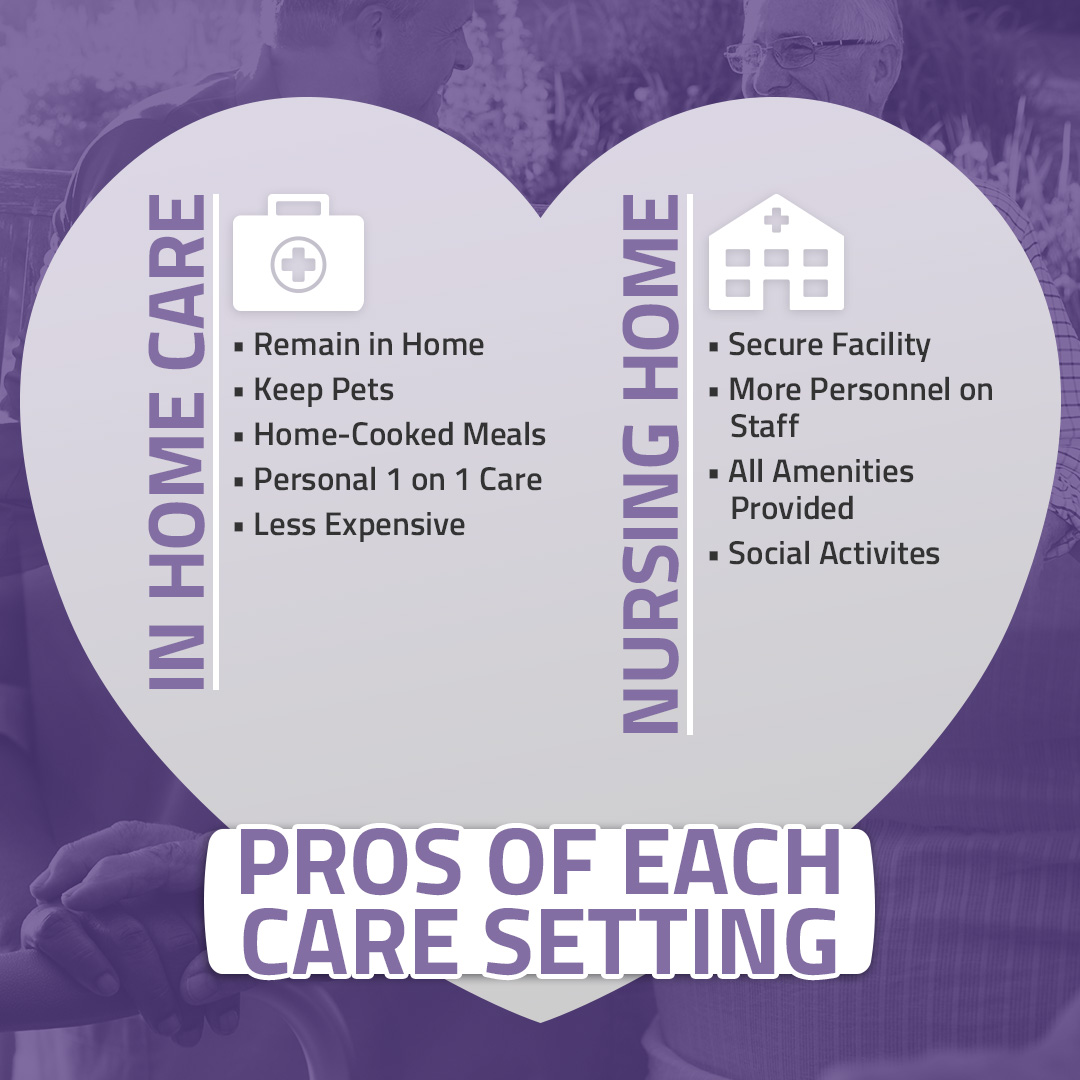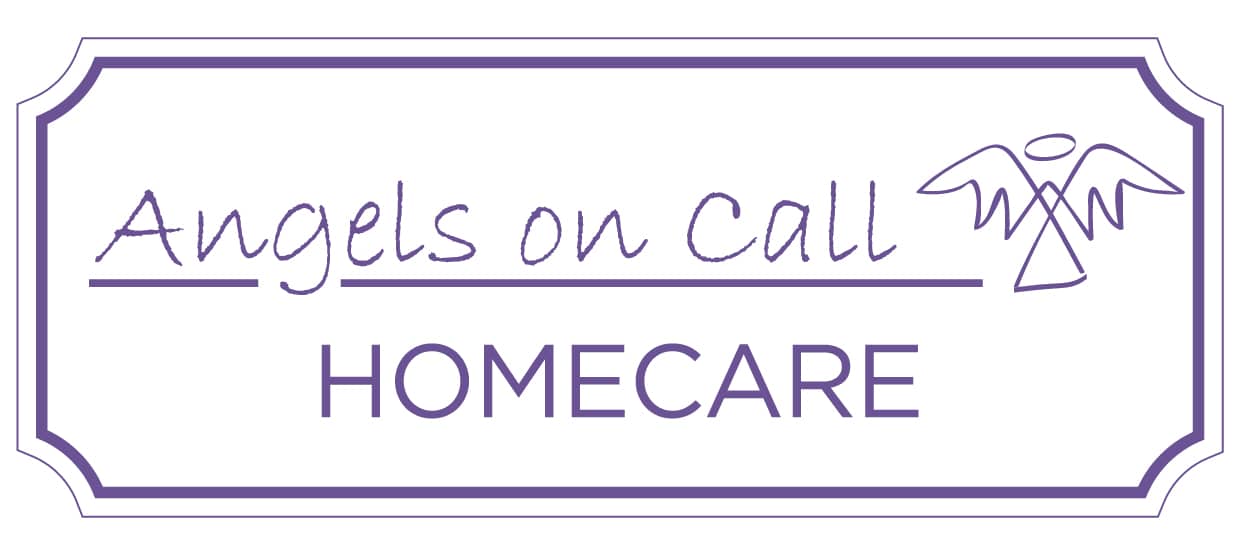Benefits of in-Home Care Vs. Nursing Home

In the United States and New York, the senior population is rising thanks to advances in medical technology and improved quality of life overall. However, the average age of the American worker extends well beyond previous traditional working age and families are having fewer children than in previous generations. This puts today's seniors at a severe disadvantage in terms of care during the aging process. Historically, families took care of aging family members right alongside their own children. Smaller nuclear families and duel working families make this much more difficult in the current day and fewer and fewer seniors are being cared for by their own families. This leaves our elderly with two viable options - give up their homes and move into a nursing home or hire in-home care.
Making the Decision to Seek Senior Care
Deciding to seek senior care is not always an easy one. Most people prefer to retain their independence and will do so long after it is safe. Seeking out senior care usually comes as a result of a new medical or physical limitation that makes completing daily tasks harder and mobility less safe. When deciding whether to move to a nursing home or request in-home care, it is wise to weigh the pros and cons. At Angels on Call Homecare, we believe it is important for every senior to understand their rights and options and make the decision that works best for their individual situation. We have created this resource that highlights the differences between in-home care and nursing home living to help make the decision easier for you and your loved ones.
Comparing In-Home Senior Care and Nursing Home Care
Senior Care Services Offered


In-Home Care Services
In-home care services consist of varying degrees of care based on the physical and medical needs of the individual. Basic in-home care typically consists of home health care aides who assist seniors with daily activities of living, personal care, light housekeeping, offer medication reminders and serve as companions. This type of care is perfect for individuals who need some assistance with mobility and dexterity but are medically stable.
Skilled home health care involves similar services to home health aides, but providers and the nursing team are qualified to case manage, supervise, and offer additional care. Including wound and injury care, medication administration, and different types of therapy. Skilled health care, in either a rehab setting or home health, is for individuals who require more complex care to manage such as recent surgery, wounds, or several chronic medical conditions.
Patients can be on a combination of in-home care services that include any of the ones we mentioned or just parts of them - housekeeping, meal prepping, etc. Additionally, in-home care services can include respite care as needed and transportation services for those who can live on their own but cannot drive.
Live-In Facility Services
There are also many types of live-in services including independent living homes, assisted living centers, retirement communities, rehab centers, and long-term care facilities (LTC) - traditionally referred to as nursing homes. As with in-home care options, the differences between these types of facilities is the level of care given and the credentials of the staff providing the care. Independent living homes are the most like home with a few amenities offered such as housekeeping, laundry service, and onsite meals and activities. A long-term care facility, or nursing home, are those facilities that offer around the clock full hands-on care to residents that require maximal assistance. Some facilities specialize in dementia and memory care, while others are simply a place for seniors to live and have the watchful eye they need to be safe.
Cost of Senior Care in New York
Long-term care in New York, such as nursing homes, assisted living facilities, and even home health care, can be expensive. The average cost of a nursing home in New York is more than $100,000 per year. When comparing the cost of a nursing home to in-home care, you can find some significant savings while living in the comfort of your own home.
The cost of typical basic in-home care by a companion or home health aide averages $165 per day, $4,950 per month, and $59,400 annually.
The cost of skilled home health care (including nursing team and therapies) averages $225 daily, $6,750 monthly, and approximately $81,000 per year.
As we can see today it is more affordable to receive in-home care. Here at Angels on Call, we believe living at home is the most wonderful thing in the world. It is where you belong and where you're most comfortable.


Pros and Cons of Senior Care Options
When discussing senior care options, there are several options to choose from including:
- In-home care
- Retirement communities
- Independent living facilities
- Assisted living facilities (ALF)
- Long-term care facilities
- Skilled nursing facilities (SNF)
- Respite care centers
- Senior daycare
Each of these senior care options varies in what services they offer, determined by the care needs of the seniors who visit or live in them. Some of the services available in each setting overlap, so it is important to evaluate what is most important to you and what your specific needs are before making any decisions. For instance, in-home care has the ability to offer every service offered at every other type of senior care option, whereas retirement communities have very limited services and are more meant for those who want to downgrade on responsibilities and live in a setting with other seniors and enjoy their golden years.
The Pros and Cons of In-Home Care
In-home care has many pros and a few cons that seniors and their families should be aware of. The cons of using in-home care rather than any facility-driven care are that there is less socialization. Social activities are limited to interactions with the caregiver, others who live in the home, visitors, and social activities that are attended outside the home. The upside of in-home care is that the senior gets to retain their independence and live in the comfort of their own home, and there really is no better place to be! Other pros of in-home care include the one-on-one care provided and the relationships that are developed with caregivers. In-home care is much less expensive than facility living and care can be tailored specifically to the senior's needs. Because the senior stays in their own home, they have access to fresh food of their choosing and home-cooked meals, rather than cafeteria-style food. Additionally, every service that can be offered by any living facility is offered via in-home care. But, perhaps one of the best parts about in-home care versus any other type of care is the ability to continue living with furry companions. Leaving pets behind or rehoming pets is often one of the biggest causes of anxiety when moving into a living facility.
The Pros and Cons of Nursing Home Care
Nursing homes and other long-term facility care options provide services for those who require more than basic care. Nursing homes offer some great pros and have some cons as well. The pros of choosing nursing home living are that there is around the clock total care, including personal care assistance and medical professionals on duty at all times. Like all facility living, amenities are provided that include housekeeping, meals, and assistance with daily needs. Those who live in nursing homes have access to activities and events and are able to engage in social activities. For those who do not have close family or require total care, nursing homes offer the most extensive care, consistently. The cons of nursing home life are cafeteria-style dining, very little privacy, and the cost of nursing home living is one of the most expensive senior care options.
For the care you deserve, from the comfort of your own home, contact Angels on-Call Homecare to schedule your in-home evaluation.
Types of In-Home Care
The type of in-home or home healthcare you require may vary and change. The great part about Angels on Call Homecare, is we tailor our services to you! Get the help you need in the home you love, by a caring angel.
